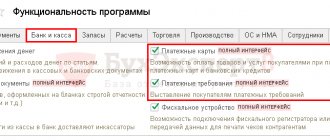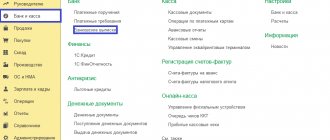If one fine morning a Sberbank client discovers that the card has been seized and the balance has been written off, most likely, in the recent past there were problems with paying taxes, loans or housing and communal services.
For men, the list of possible reasons is supplemented by alimony debt. Whatever the reason for blocking bank details, the life of the card or bank account owner is noticeably complicated, because he is deprived of access to his own funds and cannot make any financial transactions with the card. The only function that is retained by the debtor is replenishment, but the funds deposited into the account will no longer belong to the client until the financial penalty is repaid. The situation with blocked cards and seized accounts is not simple, the client is not only deprived of the opportunity to use personal funds, but is also forced to regulate the procedure for lifting the arrest, because the earliest possible release from forced collection is in the interests of only the debtor himself, and when organizing debt repayment, unpleasant misunderstandings often arise with the blocking of social cards, maternity capital funds, child support.
Minus a few hours: when seizing an account, personally communicate with bank employees
A copy of the inspectorate's decision to freeze the account is transferred to the taxpayer no later than the business day following the day the relevant decision was made (clause 4 of Article 76 of the Tax Code of the Russian Federation). But it gets to the bank in electronic form. Therefore, a situation may arise where the accounts are already blocked, but the company has not yet been notified and, accordingly, does not take any action.
To eliminate this temporary gap, you can agree with bank employees so that they immediately report the suspension of transactions on the company’s accounts. If the bank agrees to this, the time gain will be at least several hours. Moreover, sometimes controllers do not notify the company at all about blocking accounts (resolutions of the Federal Antimonopoly Service of the Moscow District dated 07/04/13 No. A40-82853/ 12-20-447, Seventeenth AAS dated 02/07/14 No. 17AP-16537/ 2013-AK). Or they send the taxpayer a notification by mail (resolution of the Federal Antimonopoly Service of the Central District dated 02.21.14 No. A09-5043/2013). Moreover, the courts do not consider such a violation to be an independent basis for removing the arrest from accounts.
What to do to cancel the arrest?
Any person whose account has been blocked has a high interest in having the seizure removed from the tax account personally or by court decision. You can speed up the cancellation of the blocking; to do this, you need to perform the following list of actions:
- Close all debts and pay fines by submitting copies of receipts to the Federal Tax Service.
- Submit the declarations and 6-NDFL together with the accompanying application to lift the arrest.
- Submit to the Federal Tax Service a document confirming receipt of the requested documentation.
Minus a few days: try to unblock some of the seized accounts
Often, fiscal officials suspend transactions on all accounts known to them, although the total balance of funds on them may be greater than the total amount of the company's tax debt. Then you can submit to the inspectorate an application to cancel the seizure of some of the accounts, indicating the details of the accounts that have enough money to fulfill the decision of the inspectors. In this case, account balances are confirmed by bank statements. No later than on the second working day after receiving the documents, tax officials must make a decision on unblocking (Clause 9, Article 76 of the Tax Code of the Russian Federation).
Illegal actions of the Federal Tax Service
The Tax Code of the Russian Federation specifies cases of account blocking. Despite this, tax services often commit violations and “freeze” money for other reasons:
- Late submission of accounting reports.
- Delay in the transfer of tax reports based on the results of a certain period.
- An error in the report or writing incorrect details for transferring money.
- Delay in the time of transfer of the declaration due to dishonest work of the operator or post office.
- Suspicion that the company is a fly-by-night company.
All the cases described above are not a reason to “freeze” funds. If the Federal Tax Service commits a violation, you can safely go to court.
Minus a few days: replace the arrest of the account with other interim measures
If current accounts are blocked as an interim measure in pursuance of an inspection decision (see sub-set on page 38), then the company can offer controllers other options instead of blocking (clause 11 of Article 101 of the Tax Code of the Russian Federation). A bank guarantee, a pledge of marketable securities or other property, as well as a third party guarantee are suitable for this.
If the amount of funds in the arrested accounts exceeds the difference between the arrears and the value of the property (according to accounting data) prohibited from alienation, then the company has the right to demand that the arrest be lifted from such a difference. This conclusion follows from subparagraph 2 of paragraph 10 of Article 101 of the Tax Code of the Russian Federation. If the tax authorities did not impose a ban on the alienation of property at all and did not determine its value based on accounting data, then the blocking is considered unlawful (resolution of the Seventh AAS dated August 14, 2014 No. A27-4159/2014). Even if the company does not have any property (resolution of the Seventeenth AAS dated September 27, 2013 No. 17AP-10785/2013-AK). On this basis, the company can apply to cancel the seizure of the account.
However, all these possibilities relate only to blocking in execution of a verification decision. These rules do not apply to the seizure of accounts for the collection of arrears in accordance with Article 76 of the Tax Code of the Russian Federation (clause 30 of the resolution of the Plenum of the Supreme Arbitration Court of the Russian Federation dated July 30, 2013 No. 57).
Causes and Effects
The current legislative acts of the Russian Federation strictly regulate possible pretexts according to which the seizure of a current account by the tax service may be allowed. The tax inspectorate and department employees may block the ability to conduct settlement transactions from a bank account and freeze the funds available in the account based on the following taxpayer offenses:
- The taxpayer did not pay the required amount of fees and taxes.
- The taxpayer has other debts to the state budget.
- An individual or legal entity as an individual entrepreneur did not submit reports to regulatory authorities.
According to the law, the taxpayer is obliged to provide reporting documentation no later than 10 days have passed from the established deadline for submission.
After a legal entity’s current account has been seized, it will not be possible to open another account even in another bank.
A tax lien may be imposed on the current account of a legal entity for the following violations:
- tax reporting (declaration) was not submitted;
- some taxes were not paid;
- personal income tax calculation was not provided;
- the request or requirements of the Federal Tax Service were not satisfied.
In order to prevent the occurrence of problems with settlement accounts, each business entity is required to follow the rules and regulations established by law and not allow the described situations to occur in their own activities.
In what cases do tax authorities have the right to seize company accounts?
1. If the company has not fulfilled the requirement to pay taxes, penalties or fines and the inspectors have already made a decision to collect them at the expense of the company (clauses 1, 2 of Article 76 of the Tax Code of the Russian Federation). The blocking is canceled no later than one business day following the day the inspection receives documents or copies thereof confirming the collection of taxes, penalties, or fines (Clause 8 of Article 76 of the Tax Code of the Russian Federation).
2. If the company has not submitted a declaration within 10 working days from the expiration of the established period (subclause 1, clause 3, article 76 of the Tax Code of the Russian Federation). This measure can be applied within three years. Cancellation of the decision - no later than one working day following the day of reporting (subclause 2, clause 3.1, article 76 of the Tax Code of the Russian Federation).
3. When submitting reports electronically, if the company does not submit to the inspection a receipt for the receipt of a number of documents within six working days from the moment they were sent by the inspectors. Tax authorities can block accounts if the organization is overdue for more than 10 working days (subclause 2, clause 3, article 76 of the Tax Code of the Russian Federation). Cancellation of the decision - no later than one working day after the receipt is transferred or after the requirements of the controllers are fulfilled (subclause 2, clause 3.1, article 76 of the Tax Code of the Russian Federation).
4. As an interim measure for the execution of a decision based on the results of a tax audit (subclause 2, clause 10, article 101 of the Tax Code of the Russian Federation). Blocking is possible only after a ban on the alienation of property is imposed and if the total value of assets is less than the total amount of arrears, penalties and fines. The decision is canceled no later than one working day following the day the inspection received documents or copies thereof confirming the execution of the decision (Clause 8 of Article 76 of the Tax Code of the Russian Federation).
If the problem is paying taxes, then you can transfer the required amount and come to the inspectorate itself with copies and originals of payment orders (see the sub-registration below). Personal attendance will save at least one working day while payments are posted to the taxpayer’s personal accounts.
If you are late filing your returns, the best option is to report immediately. Even if there are any errors in the declarations, the company will be able to correct them with the help of clarifications. But this will happen after the account is unblocked. If the organization reports on paper, then it is advisable to personally bring the declarations to the inspectorate rather than send them by mail. This will also save time.
In practice, there was a case when tax authorities seized an account due to a late declaration. The company transmitted reports via telecommunication channels. However, tax officials doubted the authority of the person who signed it. In the process of accepting the reports, they interrogated the director, who explained that he was not the head of the company and had not signed any declarations. The controllers decided that the statements could not be considered submitted because they were signed by a person whose authority was being challenged in court. On this basis, they did not lift the blocking.
Tax authorities did not cancel the seizure of accounts, even when the obligation to pay the remaining penalties disappeared
Inspectors blocked the company's accounts because it failed to pay taxes and penalties. The organization transferred part of the arrears to the budget, and also submitted updated declarations for previous periods. In them, she reduced the amount of tax payable; accordingly, the grounds for charging part of the penalties disappeared. Taking into account this reduction, the amount of debt to the budget specified in the blocking decision was repaid.
However, the controllers, without arguing with the reduction of the tax payable and with the recalculation of penalties, did not cancel the seizure of the accounts. They indicated that the submission of clarifications only entails a change in the amounts of tax payable to the budget for a specific period, which, in the opinion of the tax authority, does not correspond to the concept of “change in tax liabilities.” Therefore, it is not a basis for terminating the undisputed collection procedure. But the court did not agree with this logic and declared the inaction of the tax authorities unlawful (resolution of the Federal Antimonopoly Service of the Central District dated November 15, 2012 No. A68-3136/2012).
However, the company proved the illegality of the tax authorities’ actions. According to data from the Unified State Register of Legal Entities, at the time of filing the declaration, this particular general director was registered as a person authorized to act without a power of attorney on behalf of the company. At the same time, the Tax Code does not regulate the actions of the tax inspectorate if the head of the organization denies signing the reports.
However, the taxpayer has the right to submit an updated declaration in order to report his actual tax obligations (Article 81 of the Tax Code of the Russian Federation). The inspectorate, in turn, has the right to check the correctness of tax calculations. On these grounds, the court came to the conclusion that the inaction of the controllers was unlawful, and collected interest from them for untimely unblocking of the current account in accordance with paragraph 9.2 of Article 76 of the Tax Code of the Russian Federation (Resolution of the Federal Antimonopoly Service of the Ural District dated March 21, 2014 No. F09-1036/14).
Checking Current Account restrictions
You can quickly check the blocking/restrictions of your current account on the official website of the Federal Tax Service of Russia nalog.ru. To obtain information, you need to enter the BIC and TIN of the bank servicing the current account.
The received response email indicates: the amount of debt, from what date and for what period the account is blocked, the reason for collection or blocking of the account.
If a current account has been seized by a court, the easiest way to find out about it and check the legal basis for the reason is in a court act. A copy of the decision must be sent to the individual entrepreneur or legal entity by registered mail. The letter must be handed over against signature to a company representative or sent with notification of receipt.
Minus one to three calendar days: take a copy of the decision to unblock the account to the bank yourself
The tax authorities must send the decision to cancel the seizure of accounts to the bank in electronic form no later than the business day following the day of its adoption (Clause 4 of Article 76 of the Tax Code of the Russian Federation). The procedure for the exchange of documents between banks and inspectorates was approved by the Bank of Russia (Regulation dated 06.11.14 No. 440-P). As in the previous case, weekends falling within this period may delay the unlocking.
In practice, it may happen that the taxpayer has already received his copy of the decision to cancel the seizure of the account, but the bank has not yet received the corresponding electronic message. Then there is a chance, albeit small, to speed up the unlocking process. To do this, you must submit your copy of the decision to the credit institution and ask to unfreeze the accounts. The courts do not see anything reprehensible in this (resolution of the Federal Antimonopoly Service of the Western Siberian District dated November 26, 2008 No. F04-7331/2008 (16675-A81-37)), since the decision to cancel the arrest has already been made anyway. Although the Russian Ministry of Finance insists that the bank is obliged to wait for a message from the inspectorate (letter dated May 31, 2007 No. 03-02-07/1–266).







